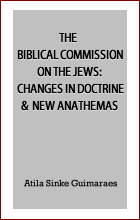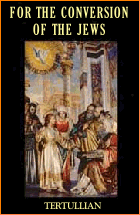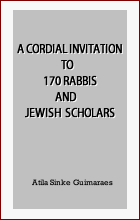Objections
You Lied when You Attributed Hesitation
to Our Lady
The Editor responds:
Mr. A.S.,
St. Luke in his Gospel refers to three different sentiments of Our Lady when she received the visit of St. Gabriel.
1. First, he stated that she was troubled: Mary “Who having heard, was troubled [turbata est] at his words and thought within herself what manner of salutation this should be.” (Lk 1:29) Now, this sentiment of being troubled, disturbed or perplexed obviously does not imply the dominance of passion in her soul, because she was born without original sin.
2. Then, the Angel told her to not fear, which means that St. Luke, inspired by the Holy Ghost, believed that fear could be attributed to her. “And the Angel said to her: Fear not, Mary, for thou hast found grace with God.” (Lk 1:30) Again, to attribute fear to the Most Holy Virgin Mary does not detract from her being exempt from any consequence of original sin.
Fr. Cornelius a Lapide comments on this passage: “That disturbance of fear was not passion … but something voluntary, permitted and consented to. No passion could dominate the Blessed Virgin, nor could it be rebellious or affect her reason and liberty. The original justice flourished in her more than in Adam. … In a similar way Christ suffered and began to feel distressed and troubled while praying in the Garden, but this He did freely, and was not coerced.” (Commentaria in Scripturam Sanctam, Paris: Vives ed., 1877, vol. 16, p. 19)
3. Another sentiment described in the same Gospel is one of doubt. “And Mary said to the Angel: How shall this be done, because I know not man?” (Lk 1:34)
A Lapide makes this commentary on Mary’s doubt: “The Virgin did not doubt the truth of the prophecy and the promise of the Angel, as Calvin blasphemously said, imagining that she had not believed. Rather, she was asking in a solicitous way how a child could be conceived and born without the loss of her virginity and the breaking of the vow she had taken.” (Ibid., p. 21)
4. Now then, if St. Luke, inspired by the Holy Spirit, considered that to attribute these three sentiments – disturbance, fear and doubt – to Our Lady did not detract from her sanctity in any way, I do not see why to attribute hesitation to her, which is a much less strong sentiment, could be “most incorrect,” even less “a lie.” So, I believe that your accusations are inconsistent with the actual text of the Gospel that describes what happened in the soul of Our Lady during the Annunciation.
5. Next, you asked/challenged me if I could quote any text that would attribute hesitation to Our Lady. By chance I have at hand a text from Venerable Mother Maria de Agreda’s City of God, which uses a term similar to hesitation when she reports what happened before the Incarnation, as revealed to her by Our Lady:
“With these and many other words, the Ambassador of Heaven [St. Gabriel] instructed the Most Holy Mary, in order that, by the remembrance of the ancient promises and Holy Writ, by the reliance and trust in them and in the infinite power of the Most High, she might overcome her hesitancy at the heavenly message.” (Maria de Agreda, City of God, Rockfort: TAN Books, 2006, vol. 2, p. 108)
6. If you have calmed down a bit, you may read the text you quoted again and you will see that there is nothing in it that may be qualified as lacking respect for Our Lady, or even less as a lie.
7. If you are impartial, as you try to appear, I hope that I will receive an apology from you.
Cordially,
Atila S. Guimarães

Posted April 19, 2018
______________________

______________________
______________________













Re: Conception through the Word Is against Natural Law
I recently read part of this article on your website. There was a question I had concerning the fourth paragraph:
"To validate those opinions, I noted that the conception of Our Lord Jesus Christ took place in a different way: The Angel Gabriel appeared to Our Lady and invited her to be the Mother of God; after some hesitation she accepted, and the conception took place through the word of the Angel and her Fiat".
The part that states that Our Lady hesitated when asked to be the Mother of God I believe is most incorrect. Please kindly state to me where it can be found whether in scripture or tradition that Our Blessed Mother hesitated. I would love for that to be clarified.
It is most serious to put this lie in an article on a website supposedly fighting for tradition. Our Lady did not hesitate but wholeheartedly accepted to be the Mother of God.
Again I ask please clarify this.
Thank you.
A.S.